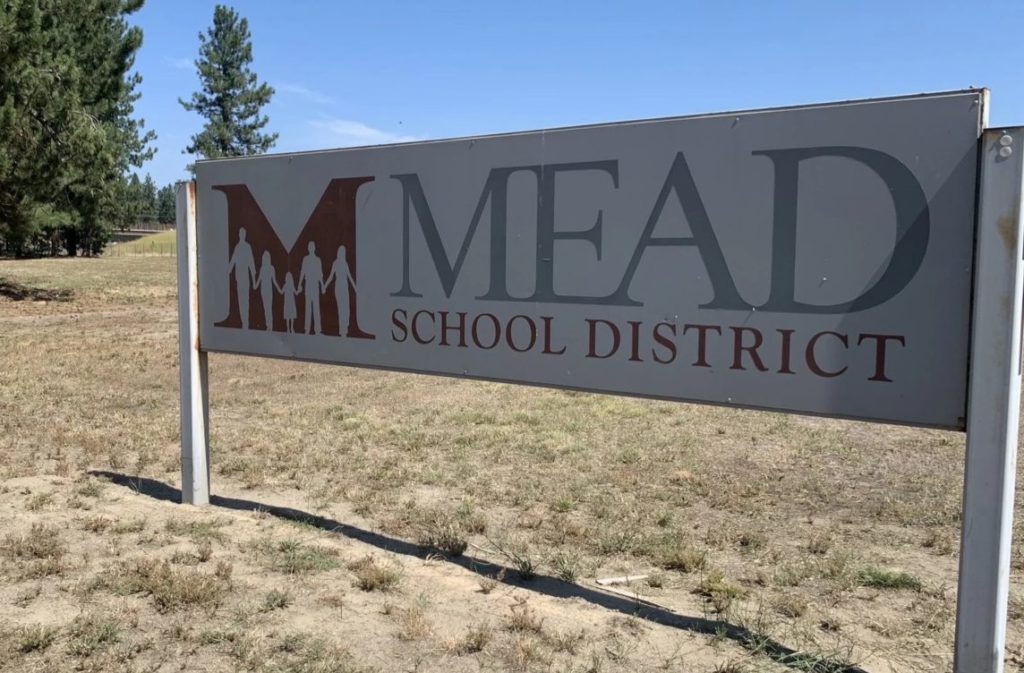Spokane-area school district explores limits on CRT, general identity lessons
(The Center Square) – The Mead School District will review proposals on Monday, Aug. 15, to exclude Critical Race Theory and gender identity lessons from classrooms and focus civics education on…

(The Center Square) – The Mead School District will review proposals on Monday, Aug. 15, to exclude Critical Race Theory and gender identity lessons from classrooms and focus civics education on “original source” documents, such as the Declaration of Independence.
The board of directors meeting begins at 6 p.m. at Northwood Middle School, 12908 N. Pittsburg Street, in Spokane. The two agenda items brought forward by District 4 Director Michael Cannon are non-actionable items, so they will only be discussed and not voted upon.
“I want this to be more of a dialogue” Cannon told The Center Square. “I want us to discuss these policies and come up with something everyone feels good about.”
His proposals are intended to encourage classroom conversations about the “good, bad and ugly” of American history without a political agenda, he said.
It is important, noted Cannon, to talk about slavery and maltreatment of Native Americans and Chinese immigrants in the development of the nation. However, he wants the conversations done in a way that factors in societal changes for the good and America’s great achievements instead of just focusing on its flaws.
“We should not be teaching our kids that we are a hopelessly racist nation that operates with ‘oppressors’ and ‘the oppressed,’” he said.
His first proposal asks the board to provide civics lessons without “mandating politicization in the classroom in the various forms of Critical Race Theory.”
CRT is the core belief that U.S. social institutions (e.g., the criminal justice, education, labor market, housing market, and healthcare) are laced with racism embedded in laws, regulations, rules, and procedures. That system leads to differential outcomes for whites and people of color, according to a definition by the Brookings Institute.
“I don’t want any student at Mead to be taught that there are limitations on what he or she can accomplish because of race,” said Cannon. “I don’t want students from mixed-race families put in the situation to have to view one parent differently from the other.”
He is asking the board to stipulate that school district employees cannot be made to discuss CRT curricula or ideology. As examples, he names the book “How to be AntiRacist” written by social justice activist Ibram X. Kendi and “Caste: The Origins of Our Discontents” by journalist Isabel Wilkerson.
Also named is the controversial “1619 Project,” which was developed by Nikole Hannah-Jones, a writer from the New York Times and The New York Times Magazine. That work claims that America’s “true founding” was the day in 1619 that 20 enslaved Africans were brought ashore in Virginia and sold. The project outlines that the nation’s founding principles, as outlined by the framers, were an illusion to cover up racial exploitation.
Cannon wants any educator who does explore these writings in class to do so from “diverse and contending perspectives without giving deference to any one perspective.”
“These are not textbooks, they are interpretations of history through a specific lens,” he said.
His proposal states that employees cannot require participation, make it part of the course, or assign a grade or class credit for CRT-related material. It also disallows the district’s 600 certified teachers from encouraging student political activism, such as contacting legislators.
“Education has become Ground Zero in the battlefield of ideas,” said Cannon. “There are a lot of social groups that see schools as a conduit to raise up young political activists. That is not the role of a school, and more and more parents are very concerned about what is happening in our classrooms.”
Cannon’s second policy directs school libraries in Mead, an unincorporated suburb north of Spokane, to provide students with age-appropriate materials for civics. He said these lessons should provide a “functional understanding of the fundamental moral, political, and intellectual foundations of the American experiment in self-government and Washington’s role in that noble experiment.”
He provides a list of primary reading sources that should drive civics lessons, such as the Constitution, Federalist Papers, the second of John Locke’s Two Treatises of Government, and transcripts of the Lincoln–Douglas debates.
Cannon revised his initial draft policy to state that resources provided to K-5 students be “age appropriate and shall not include references to gender identity, gender fluidity, the gender spectrum, or gender-neutral ideology in any form in Elementary libraries.”
“I just think gender identity lessons are inappropriate for that age,” he explained.
Cannon said that since his proposals became public, he has been called a “racist” and attacked by local social justice groups. However, he said there has also been a lot of support from parents in the district with about 10,400 students in 17 schools.
“I would say that 75 to 80% of this community is widely supportive,” he said. “We’ got to quit ending every conservation with someone we disagree with by calling them a racist.”
Cannon began a four-year term on the board in 2019. Prior to that, he served as chair of the Pride Prep Charter School Board in Spokane, one of the first public charter schools in the state. He is a small business owner and long-time Spokane resident, according to the district’s website.



